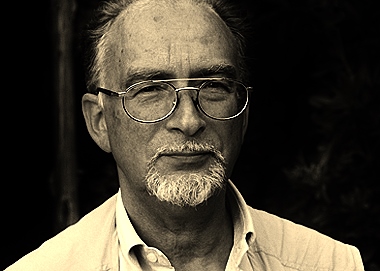The World Health Organization has advised Ukraine to destroy “high-risk pathogens” in the country’s public health laboratories in order to prevent “any spillage” that could infect the population during the Russian invasion, he reports Reuters .
“As part of this work, WHO has strongly recommended the Ministry of Health in Ukraine and other responsible bodies to destroy high-threat pathogens to prevent potential spills,” the UN agency said.
The report comes after a stretched back and forth between US and Russian officials on “dangerous” biolabs in the country – with Russia, and then China, accusing the US military of involvement in Ukrainian biolabs.
On Wednesday, Russian Foreign Ministry spokeswoman Maria Zakharova repeated a longstanding claim that the United States operates a biological warfare laboratory in Ukraine, a charge that has been repeatedly denied by Washington and Kiev.
Zakharova said documents unearthed by Russian forces in Ukraine showed “an emergency attempt to wipe out evidence of military biological programs” by destroying laboratory samples. -Reuters
The United States has denied the allegations releasing (among other things) a statement Thursday that “The United States has no chemical or biological weapons laboratories in Ukraine,” adding that America “does not develop or own chemical and biological weapons anywhere.”
On Tuesday, US Undersecretary of State Victoria Nuland acknowledged that Ukraine “ it has biological research facilities, of which, in fact, we are now quite concerned that Russian troops, Russian forces might try to gain control. So we are working with the Ukrainians on how they can prevent any of those research materials from falling into the hands of Russian forces if they get close. “
Nuland’s response made it clear that whatever is inside Ukrainian biolabs is a serious concern, however it should be noted that there is no public evidence of biological weapons nor does the WHO statement refer to the war biological, which is a separate issue from whether the laboratories contained or contained dangerous pathogens that could be used in a biological weapon .
In response to Wednesday’s statement by Russian Foreign Ministry spokeswoman Maria Zakharova that the United States is running a biological warfare laboratory in Ukraine, a Ukrainian presidential spokesperson said: “Ukraine strictly denies any such accusation.”
The UN Security Council will meet on Friday at Russia’s request to discuss the claims.
RUSSIA CALLS FOR A MEETING OF THE UN SECURITY COUNCIL ON “BIOLAB
Moscow says Washington has funded and curated alleged biological weapons programs in Ukraine
Russia calls for a meeting of the UN Security Council on Ukrainian “biolabs”
Russia has called for a meeting of the UN Security Council to discuss alleged US-backed biological weapons programs in Ukraine. Washington denied owning or operating such biolabs in the country, while Kiev insisted the facilities be engaged only in civilian research.
United Nations Deputy Moscow Envoy Dmitriy Polyanskiy announced the move on Friday, saying the mission had requested a Security Council summit on March 11 citing a Defense Ministry briefing alleging that the United States and NATO allies ran “military biological programs” in Ukraine.
The military briefing went on to say that the Pentagon’s Defense Threat Reduction Agency is “funding and conducting military biological research on the territory of Ukraine,” citing documents it claimed it captured in several facilities during the attack in Ukraine. course of Russia to the country. Among other activities, the ministry stated che research was carried out in laboratories in Kiev, Kharkov and Odessa to “study the possibility of the spread of particularly dangerous infections through migratory birds”.
Washington, however, rejected those allegations, with State Department spokesman Ned Price telling reporters Wednesday that the United States “is fully compliant with its obligations under the Chemical Weapons Convention and the Biological Weapons Convention, and they neither develop nor possess such weapons anywhere. “
Instead, Price said it was Russia that ran “active chemical and biological weapons programs,” although it did not elaborate or provide evidence for the counter-allegation.
Other US officials offered different responses to Russia’s claims. State Secretary for Political Affairs Victoria Nuland, for example, told lawmakers on Tuesday that Ukraine does, in fact, have “biological research facilities,” expressing concern that “Russian forces could try to get the control ”of hazardous materials from those laboratories. However, she stopped short of confirming any American role in the facilities and did not go into detail on the type of work being done.
Ukrainian President Volodymyr Zelesky also dwelt on the issue, stating that all biolabs in his country do not have a military dimension and are “focused on civil science”. He claimed that most of the structures have existed since the Soviet era.
“Neither chemical nor other weapons of mass destruction are being developed on our soil,” he said Friday.
Meanwhile, Russian forces have taken control of some of these laboratories and are gathering evidence of activities being carried out in these facilities that were funded and controlled by the Pentagon.
Source: https://www.rt.com/news/551668-russia-un-ukraine-biolabs/
